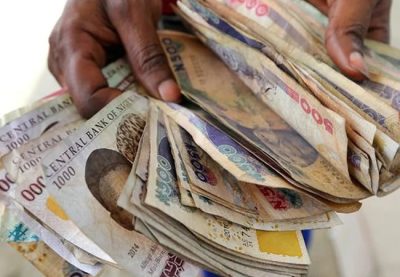
According to recent reports, Nigeria’s cash shortages that have persisted for three months are expected to subside this week. Banks have complied with the Central Bank of Nigeria’s latest directives on cash dispensing over the weekend, which will likely ease the situation. The country has experienced disruptions in cash dispensing channels since the implementation of the CBN’s Naira Redesign policy. The apex bank directed banks to collect all their cash requirements from the CBN to meet all customer demands, while also opening their branches on Saturdays and Sundays. The CBN also relaxed its cash withdrawal policy, increasing the limit for individuals to N500,000 and for corporates to N5 million.
Although there are still long queues at various banks and ATMs, there has been an improvement in the disbursement of cash to customers, with most ATM points now active. However, some bank officials still expect much pressure in the coming days. Financial analysts are divided on the likely impacts of the cash crises on banks’ financial performance in the first quarter of 2023. While some believe the effect will be negative given the attendant slowdown in economic activities, others argue that it will have only a marginal impact as it did not affect interest income and commission income, which are the major revenue streams of banks.
The slowdown in economic activities due to the cash crisis could affect banks’ financial performance in Q1’23 negatively, said David Adonri, Vice Chairman, Highcap Securities. He noted the challenges with mobile payment during the period, which resulted in a deluge of failed online transactions. On the other hand, Gafar Bashiru, Senior Associate at Parthian Partners, disagreed, saying the cash crisis would have little impact on banks’ Q1’23 performance. However, Tajudeen Olayinka, Managing Director/CEO of Wyoming Capital and Partners, noted that the cash crunch would affect the GDP negatively, given that manufacturing, trading, agricultural output, and sales were already affected.
Banks are set to experience a record high in electronic banking income following the massive and widespread shift to electronic payments caused by the Naira Redesign policy. Individuals and businesses have resorted to electronic payment channels for payment of goods and services due to the difficulty in accessing cash. Consequently, the volume and value of electronic payment transactions rose by 63.3% and 33.4% in the first two months of the year, according to the Nigerian Interbank Settlement System (NIBSS). This trend is expected to boost electronic banking income, which represents 6.9% of the earnings of the five Tier-1 banks in the nine months to September 2023.
Comments are closed.